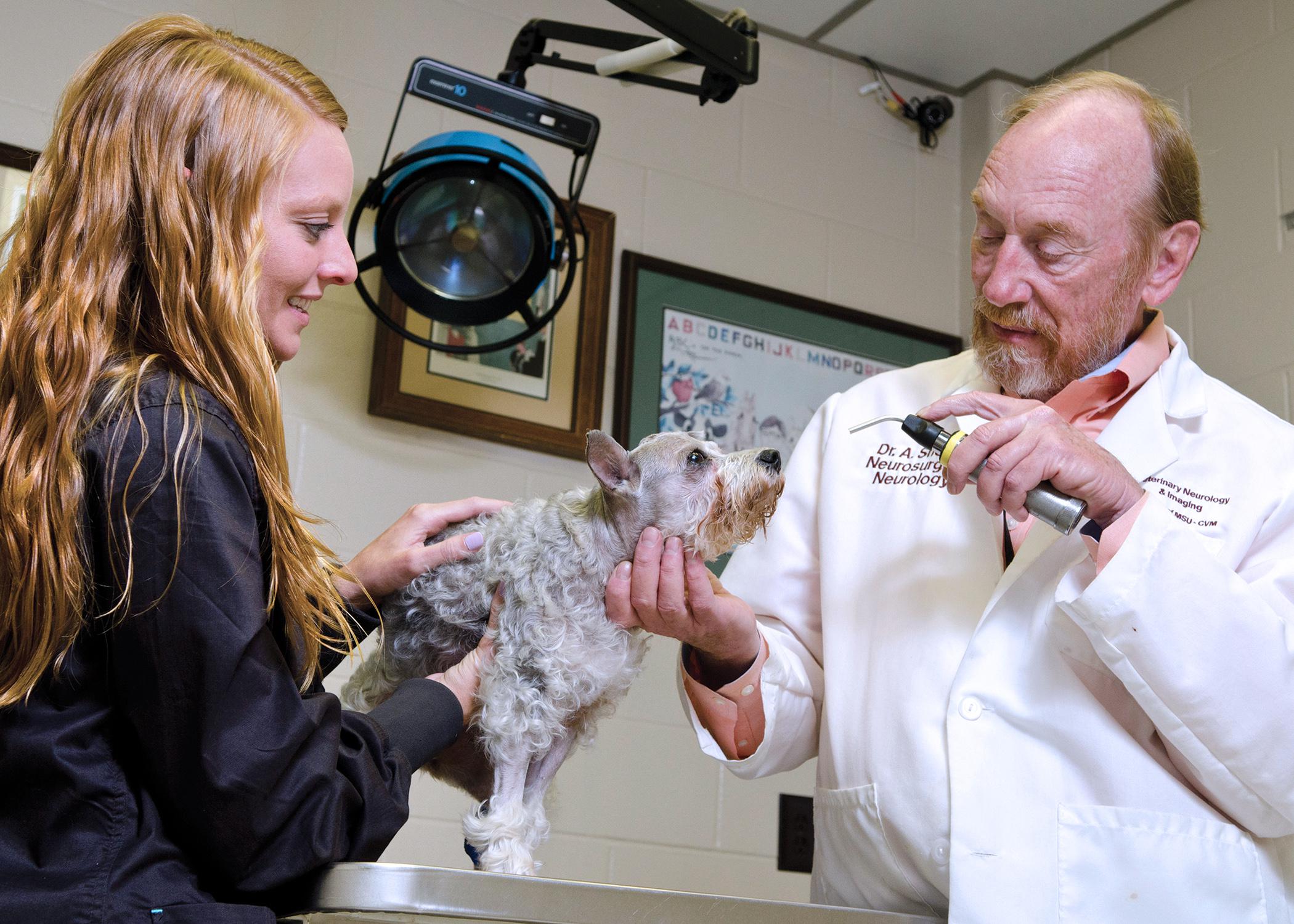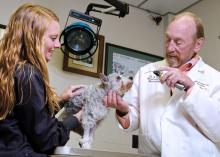Information Possibly Outdated
The information presented on this page was originally released on October 7, 2014. It may not be outdated, but please search our site for more current information. If you plan to quote or reference this information in a publication, please check with the Extension specialist or author before proceeding.
MSU veterinarian helps develop head trauma app
MISSISSIPPI STATE -- Dr. Andy Shores hopes to help veterinarians make better patient recommendations with a smartphone application.
Shores, chief of neurosurgery and neurology at the Mississippi State University College of Veterinary Medicine, developed the Small Animal Coma Scale app to give veterinarians an easier way to assess the severity of a traumatic brain injury in dogs and cats while capturing statistical data.
“The Small Animal Coma Scale has been used by many veterinarians since 1990,” said Shores, who is also a professor in the college’s Department of Clinical Sciences. “People know it’s out there. But we are missing a cumulative collection of data on case outcomes. That is what is unique about this app. To my knowledge, it is the first medical app ever developed with the ability to collect data about patient outcomes and specific details about treatment.”
In 1988, Shores adapted the Small Animal Coma Scale, or SACS, from the Glasgow Coma Scale, which is used to evaluate head trauma in humans. The SACS has been validated through Shores’ own cases, by other investigators’ cases, and in three separate published scientific studies.
Veterinarians, especially veterinary neurologists and emergency and critical care specialists, use the scale to evaluate injured patients in three areas: motor activity, brain stem reflexes, and level of consciousness. Patients receive a score in each area, and then the scores are added together.
“Without this evaluation system, many dogs and cats might receive an incorrect prognosis,” Shores said. “It is difficult to evaluate an animal with a traumatic brain injury just by looking at their state of consciousness.
“We can get a general idea about the patient’s overall condition, but those things are very subjective. Using the SACS allows us to evaluate the severity of injuries objectively and better understand the chances of recovery. As a result, pet owners can make better care decisions based on the animal’s prognosis,” he said.
To create the app, Shores teamed up with Dr. Simon Platt, a neurologist at the University of Georgia College of Veterinary Medicine, and Kyle Johnsen, an engineering professor at the University of Georgia.
Veterinarians can use the app to score a patient and submit the information via email from their phones, Shores said. The patient is then assigned a case number, and later, the veterinarian receives a follow-up email to submit the case outcome.
Shores has collected data since he created the scale 26 years ago, but the app should help broaden head trauma understanding, said Dr. Michaela Beasley, a neurologist who works with Shores.
“Right now we have some statistics on overall scores and how they correlate to an animal’s recovery,” said Beasley, an assistant professor in the Department of Clinical Sciences. “But we hope we can gather enough data to be able to understand how the scores in individual categories might affect an individual’s prognosis. For example, if the animal scores low in motor activity and level of consciousness but scores higher in brain stem reflexes, that may mean he has a better prognosis.”
More comprehensive data also could help veterinarians make some treatment decisions, such as which animals need anti-seizure medications, Beasley said.
Dr. Ron McLaughlin, interim dean of administration and professor in the Department of Clinical Sciences, is excited about the possibilities the new application provides.
“The Small Animal Coma Scale application is important to our efforts to improve the treatment of patients with head trauma,” McLaughlin said. “The app will be a valuable learning tool for students, interns, and residents. The data it collects will eventually lead to better treatment protocols for these patients and help owners make sound decisions regarding their pets’ medical care.”
The Small Animal Coma Scale app is now available for free in the Apple iTunes store and the Google Play store.
Contact: Karen Templeton, 662-325-1100





